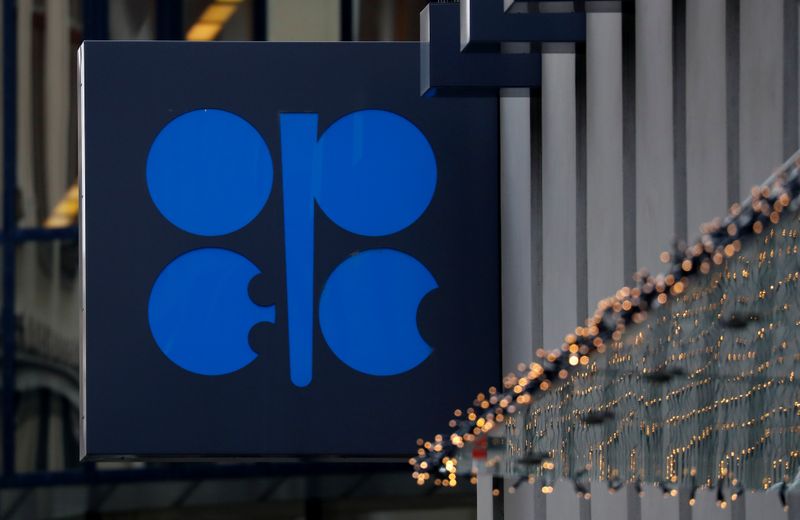By Rania El Gamal, Alex Lawler and Olesya Astakhova
VIENNA (Reuters) - A three-year pact between OPEC and Russia ended in acrimony on Friday after Moscow refused to support deeper oil cuts to cope with the outbreak of coronavirus and OPEC responded by removing all limits on its own production.
Oil prices plunged 10% as the development revived fears of a 2014 price crash, when Saudi Arabia and Russia fought for market share with U.S. shale oil producers, which have never participated in output limiting pacts.
Brent has lost about a third of its value this year, tumbling towards $45 a barrel, its lowest since 2017, putting oil-dependent nations and many oil firms under heavy strain as the global economy reels due to the virus outbreak, which has dampened business activity and stopped people travelling.
"From April 1 neither OPEC nor non-OPEC have restrictions," Russian Energy Minister Alexander Novak told reporters after marathon talks at the OPEC headquarters in Vienna on Friday.
Saudi Energy Minister Prince Abdulaziz bin Salman told reporters when asked whether the kingdom had plans to increase production: "I will keep you wondering".
The failure of talks may have more far reaching implications as OPEC's de facto leader Saudi Arabia and Russia have used oil talks to build a broader political partnership in the last few years after effectively supporting opposite sides in the Syrian war.
"Russia's refusal to support emergency supply cuts would effectively and fatally undermine OPEC+'s ability to play the role of oil price stabilising swing producer," said Bob McNally, founder of Rapidan Energy Group.
"It will gravely rupture the budding Russian-Saudi financial and political rapprochement. The result will be higher oil price volatility and geopolitical volatility," he said.
SHALE SLOWDOWN
Beyond Moscow and Riyadh's ties, plunging oil prices will put pressure on U.S. shale producers, whose output costs are much higher than those of Russian and Saudi production, even though many shale producers are well hedged against price falls.
"This crisis has revealed that Saudi is not willing to keep a floor under shale and other producers. They are expediting the slowdown on shale," said Christyan Malek, head of JP Morgan oil and gas research for Europe, Middle East and Africa.
The OPEC+ talks collapsed after OPEC effectively presented Russia with an ultimatum on Thursday, offering it a choice of accepting a deal with much bigger than expected cuts or no deal at all.
Forecasts for 2020 demand growth have been slashed but Moscow has long argued it was too early to assess the impact. Sources said Novak delivered the same message on Friday.
OPEC ministers said on Thursday they backed an additional 1.5 million barrels per day (bpd) of oil cuts until the end of 2020, in addition to rolling over existing cuts of 2.1 million bpd. That would have meant removing a total of about 3.6 million bpd from the market, or 3.6% of global supply.
Moscow rejected the proposal on Friday, saying it was only willing to extend existing OPEC+ cuts of 2.1 million bpd, which were due to expire at the end of March. But in response, OPEC even refused to extend the existing cuts.
The Kremlin said on Friday President Vladimir Putin had no immediate plans to talk to the Saudi leadership, an announcement that dashed hopes that a deal could be salvaged at the very top.
The collapse of the deal means OPEC members and non-OPEC producers can in theory pump at will in an oversupplied market.

"This is an unexpected development that falls far below our worst case scenario and will create one of the most severe oil price crises in history," said Bjoernar Tonhaugen of Rystad Energy.